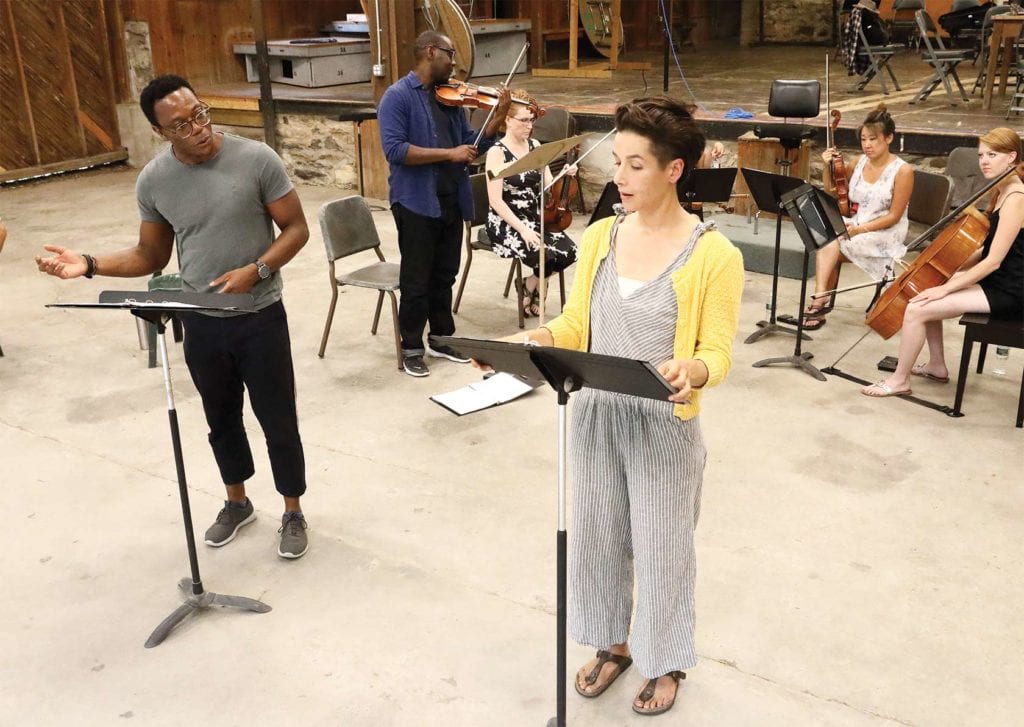Bill Barclay brings pioneering black composer back into the limelight in ‘The Black Mozart’

On Monday, Aug. 19, Bill Barclay, former director of music at Shakespeare’s Globe Theatre, debuted his new concert theater piece, “The Black Mozart,” on the Boston Symphony’s Tanglewood stage. “The Black Mozart” is one of the early productions in Barclay’s Concert Theatre Works organization, which aims to make concert music more accessible to a contemporary audience.
Commissioned by the Boston Symphony Orchestra, the piece tells a slice of the wild historical story of composer and activist Chevalier de Saint-Georges. The 18th-century black aristocratic composer immigrated from Guadalupe to France and became a pioneer in nearly every field he touched.
“I couldn’t believe that we as a culture had forgotten this man and his contributions to the abolishment of slavery, to the development of classical musical, to the development of fencing and marksmanship,” says Barclay. “His story is marginalized — he’s scrubbed from history for essentially no compelling reason other than he’s black.”

l-r Bill Barclay (Captain de Laclos), David Joseph (Mozart), Chukwudi Iwuji (Chevalier). PHOTO: HILARY SCOTT
Saint-Georges was Marie Antoinette’s personal music teacher, conducted one of the most successful orchestras in Europe, and was Mozart’s roommate for three critical months after Mozart’s mother had died. “We read these stories everyday about what’s happening to immigrant culture and immigrant identity, and I suddenly realized I had a story of three immigrants on my hands,” says Barclay, referring to Marie Antoinette and Mozart, both from Austria, and Saint-Georges from Guadalupe.
It’s the three months with Mozart that Barclay focuses on in his production. Did they get along? How did this stint impact each composer’s work? Did Saint-Georges leave his dishes in sink? These questions are lost to history, but Barclay imagines what the answers may be in a production that blends narration with actors, featuring Chukwudi Iwuji as Saint-Georges, the composer’s forgotten music, and narration by Barclay himself.
The broader mission of Concert Theatre Works is to bring concert music into the modern age. In previous productions, Barclay has used puppetry, film, actors and unique design elements to illustrate how concert music transcends the time period it was created in. “I feel that musicians have to advocate better on behalf of their own art form,” says Barclay. “And in order to do that, they have to become more interdisciplinary in their approach and incorporate other art forms so that they’re contextualizing the music that they know is wonderful with other ways that people can be drawn in.”
But the particular mission of this beautifully crafted stage show is to bring a talented composer of color back into the limelight he deserves. Barclay encourages audiences to reach out to their local orchestras and request music by Saint-Georges or a staging of “The Black Mozart.” He says, “People can put his music into their lives the way we put Mozart and Beethoven into our lives.”








